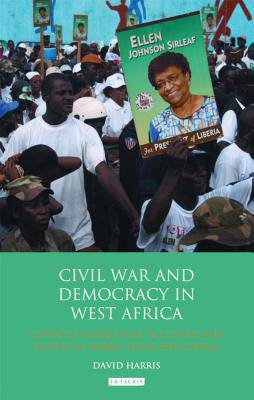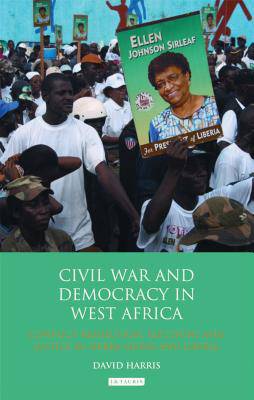
- Afhalen na 1 uur in een winkel met voorraad
- Gratis thuislevering in België vanaf € 30
- Ruim aanbod met 7 miljoen producten
- Afhalen na 1 uur in een winkel met voorraad
- Gratis thuislevering in België vanaf € 30
- Ruim aanbod met 7 miljoen producten
Zoeken
Civil War and Democracy in West Africa
Conflict Resolution, Elections and Justice in Sierra Leone and Liberia
David Harris
€ 72,95
+ 145 punten
Omschrijving
In the aftermath of explosive civil wars in Africa during the 1990s and 2000s, the establishment of multi-party elections has often been heralded by the West as signaling the culmination of the conflict and the beginning of a period of democratic rule. However, the outcomes of these elections are very rarely uniform, with just as many countries returning to conflict as not. Here, David Harris uses the examples of Sierra Leone and Liberia to examine the nexus of international and domestic politics in these post-conflict elections. In doing so, he comes to the conclusion that it is political, rather than legal, solutions that are more likely to enhance any positive political change that has emerged from the violence. This book is thus of significance to Western and African policy makers, and also to students and scholars who wish to engage with the critical issues of conflict resolution and reconciliation both in Sierra Leone and Liberia in particular and in the wider region in general.
Specificaties
Betrokkenen
- Auteur(s):
- Uitgeverij:
Inhoud
- Aantal bladzijden:
- 320
- Taal:
- Engels
- Reeks:
- Reeksnummer:
- nr. 29
Eigenschappen
- Productcode (EAN):
- 9781780767758
- Verschijningsdatum:
- 27/03/2014
- Uitvoering:
- Paperback
- Formaat:
- Trade paperback (VS)
- Afmetingen:
- 137 mm x 213 mm
- Gewicht:
- 317 g

Alleen bij Standaard Boekhandel
+ 145 punten op je klantenkaart van Standaard Boekhandel
Beoordelingen
We publiceren alleen reviews die voldoen aan de voorwaarden voor reviews. Bekijk onze voorwaarden voor reviews.











